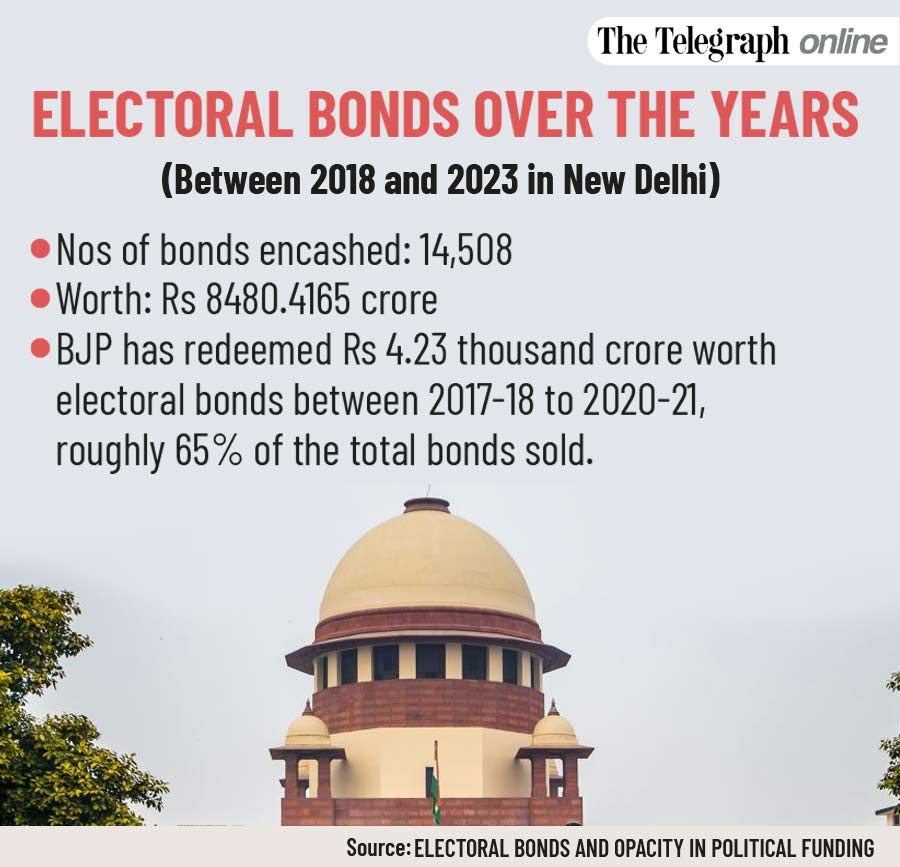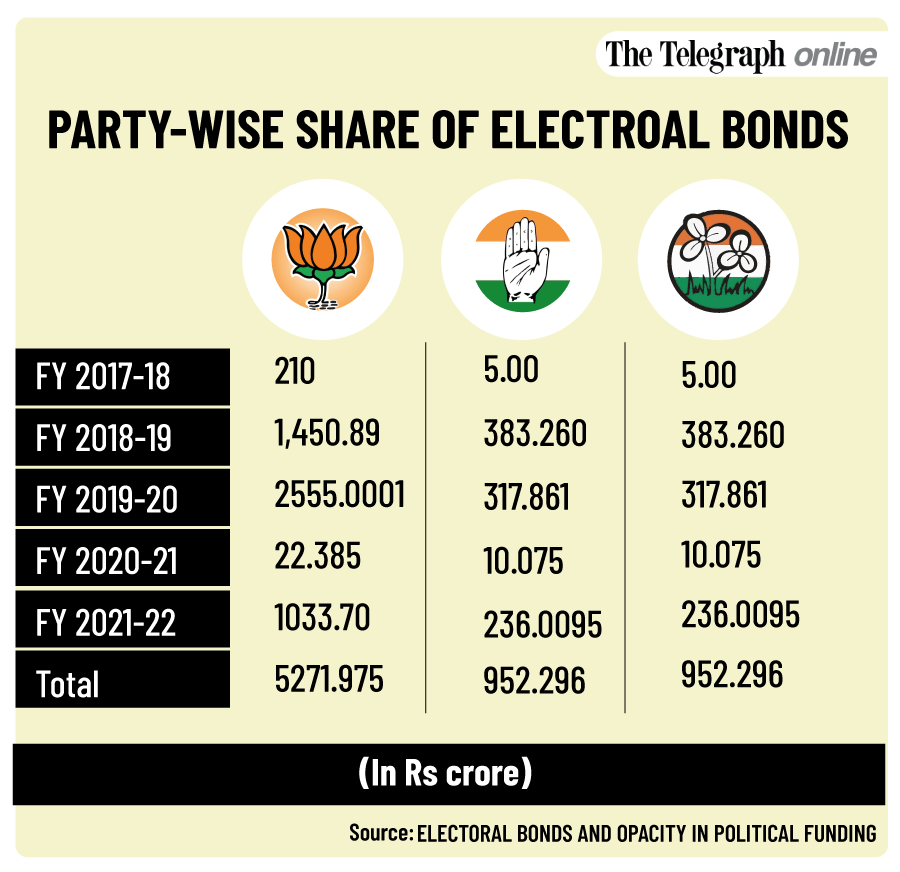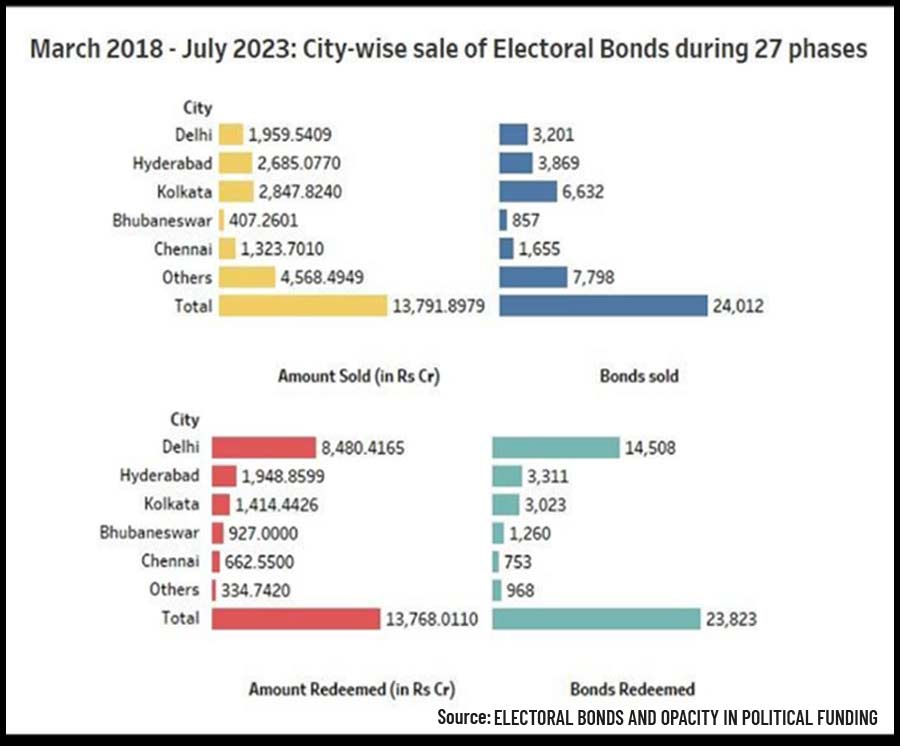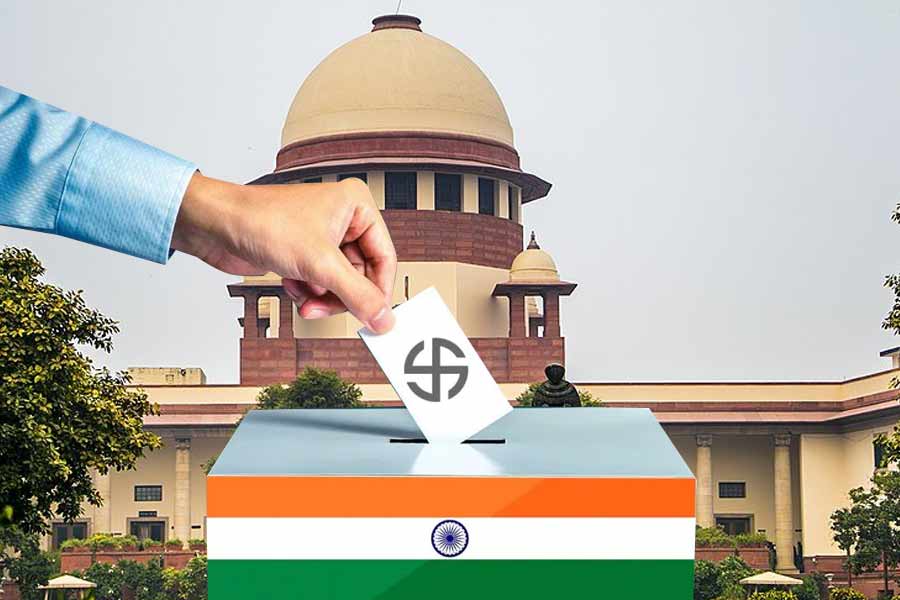Within minutes of the Supreme Court striking down the Narendra Modi government’s Electoral Bond Schemes as “unconstitutional”, a Mumbai-based poet-lyricist seemed to have caught the immediate mood of many when described the verdict as a firefly in a dark room.
“Yaar kasam se Electoral Bonds par yeh faisla sun ke aankhein bheeg gayi. Pata nahin iss mein emotional hone ki kya baat hai. Lekin bilkul andhere padhe kamre mein timtimata sa jugnu aa gaya ho jaise. Gale mein awaaz laut aayi ho jaise (By God I was in tears on hearing the verdict on electoral bonds. I don’t know what was there to get so emotional about. But in an absolutely dark room, it seemed like a tiny fire-fly had found a way in. As if the lost voice had returned),” Puneet Sharma, who hails from Indore, wrote in a longish post in his X account in Hindi.
The 36-year old Sharma, whose poem “Tum Kaun Ho Bey (Who the *** are you)” had turned into a sort of anthem for the movement against the Citizenship Amendment Act four years ago, went on to say how for years he had been arguing with the “educated” to insist that this one move (electoral bond) was enough to undermine democracy in the country.
Thursday’s Supreme Court Constitution Bench verdict, which calls the poll bonds scheme "unconstitutional" as it goes against freedom of speech and expression as well as the right to information, has come at a time when the country is preparing for another round of general elections that many perceive will be crucial for preserving a pluralist India, an India that many feel has been endangered in the decade-long rule of the BJP led by PM Narendra Modi.

TTO Graphics.
The verdict came as a surprise to most. Just the day before, Umar Khalid, incarcerated since September 2020, had announced his decision to withdraw his bail plea from the apex court. In Bihar, a chief minister had made yet another U-turn and joined hands with the BJP. In Jharkhand, a chief minister had to resign after being hounded by central probe agencies. In Maharashtra, a former chief minister once accused in a scam by Modi himself joined the BJP and has been nominated to the Rajya Sabha.
Even before the Election Commission has announced the date for the next general elections, Modi and the BJP have staked claim to a third term. It is in this backdrop that Sharma’s sense of satisfaction with Thursday's Supreme Court verdict needs to be placed.
"Here is another example of the corrupt policies of Narendra Modi. BJP had turned electoral bonds into a means of bribery and commission. This has been stamped today," said Rahul Gandhi in a post on X.
“A welcome verdict! Glad that this unanimous verdict of the Supreme Court bench has upheld our contention. Congratulation to our counsel Shadan Farasat and others who effectively argued the case,” said CPM general secretary Sitaram Yechury. “The details of those who bought these bonds and those who received them to be made public by March should expose murky deal makings of the ruling party.”
The CPM, the Association for Democratic Reforms (ADR), along with Common Cause, an NGO, and Congress leader Jaya Thakur, had filed separate petitions for scrapping the bond scheme introduced by the Modi government in 2018. According to the scheme, the bonds have to be purchased from the state-owned State Bank of India. While the donor had the option to make the donations using the electoral bonds anonymously, the government which controls the bank could access the data.
Political parties are required to reveal the identities of all those who donated more than Rs 20,000. In the case of electoral bonds, political parties were exempted from revealing the identity of donors irrespective of the amount of the bond sold in multiples of Rs 1,000, Rs 10,000, Rs 1lakh, Rs 10lakh or Rs 1crore. The parties have to encash the bonds within 15 days or the funds are deposited into the Prime Minister’s Relief Fund.

TTO Graphics.
The power to issue sale of bonds rested with the Modi government. Though technically it was allowed to sell bonds in the first 10 days of every quarter, the Modi government relaxed the rules ahead of two crucial state Assembly elections in 2018.
“The electoral system before the introduction of the electoral bonds was not the best. It had been made worse by the electoral bonds,” said ADR co-founder Jagdeep S Chhokar following the verdict.
Warnings issued by both the Reserve Bank of India and the Election Commission of India were overruled by the Modi government. The RBI was apprehensive the scheme had the potential to increase black money circulation, money-laundering, cross border counterfeiting and forgery.
The EC had described the scheme as “retrograde” and said it needed to be withdrawn as “any donation received by any political party has been kept out of the ambit of reporting.”
A report released by petitioner ADR ahead of Thursday’s verdict revealed the BJP had received 90 per cent of all corporate donations in the FY 2022-23.

TTO Graphics.
Last October, the ADR had analysed the sale of electoral bonds from 2018 to 2023. The analysis revealed the most number of bonds were sold from Calcutta, ahead of Delhi, Hyderabad, Chennai and Bhubaneswar (see chart).
In the months leading up to the Lok Sabha polls, the combined Opposition has been making noises over the lack of a level-playing field given the brute strength of the BJP within Parliament and its cadre outside, assisted by central probe agencies under its control.
The data serves as an indicator of how far the electoral bond scheme is skewed in the ruling BJP’s favour. According to the ADR report, the BJP in its annual audit submitted to the EC for the FY 2017-18, stated it had received Rs 210 crore via electoral bonds, 95 per cent of all the bonds sold during that fiscal (see chart).
Kapil Sibal, a Congress’ Rajya Sabha MP and lawyer, hopes the verdict gives the Opposition a chance.
“…also you will get to know the Quid pro quo because nobody gives these huge amounts of money without a Quid pro quo… so if you’ve funded your political party with 5,000 crore you can imagine only the rich could have done that and they must have in the process got some favours...So I think in a sense this provides for a level playing field in a democracy. And it also exposes the BJP.”
Though the SBI has been instructed by the apex court to return the non-encashed bonds, Congress’ Sivaganga MP Karti Chidambaram believes the move would not have any impact on the BJP’s resources. “By allowing to retain the encashed electoral bonds, the BJP which has received 90 per cent of all anonymous donations is unaffected. While this is a welcome verdict, it doesn’t level the playing field,” Chidambaram wrote on X.
Lyricist Puneet Sharma refuses to sound cynical and is ready allow himself a glimmer of hope. “I know this verdict is not the final word. But for this mind dealing with a drought for years, this verdict is like a weather forecast of rains, that I want to hope for. I am emotional because this involves my interests. I want to live in a better democracy. That is all I want.... For now, this is enough,” he wrote.

Lyricist Puneet Sharma. The Telegraph Online.










